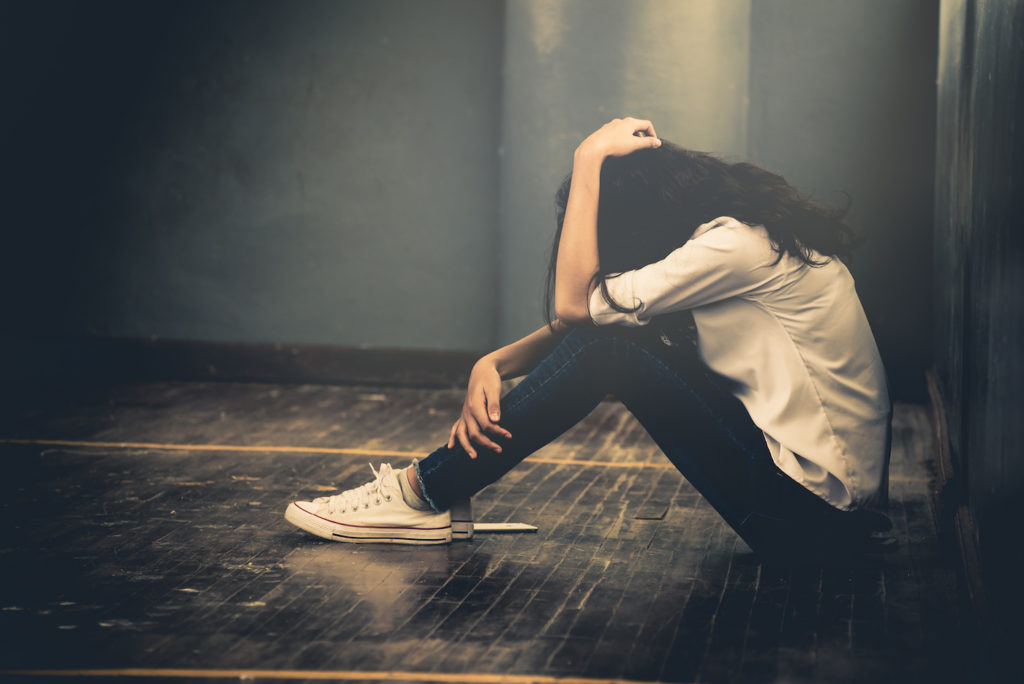Yesterday I read with profound sadness an account from a seventeen-year-old woman who has, apparently, undergone a double mastectomy and at least some hormonal interventions, and now is utterly miserable and alone.
She writes (spelling and grammar as in the original):
Im a 17 year old girl with a flat chest, a deep voice, a visible Adam’s apple and some facial hair. There’s no reason for me to continue to live. I destroyed my life and I feel like all hope I have is stupid for me to have. I don’t think any person will ever wanna date me. Before all this people were into me but I destroyed that.… I feel ashamed of what I did.
One cannot but feel sorrow for this young woman, speaking, as she does, with pain and despair. Later she articulates her desire for it all to be over, to end her life.
Start your day with Public Discourse
Sign up and get our daily essays sent straight to your inbox.Sorrow quickly turns to anger, however, for this vulnerable young person was abandoned by the adults charged to care for and protect her:
I was just a kid and I would have needed someone to help me accept myself but my therapist didn’t question my ,,transness”.… I love my mom. She is an amazing mom. She stopped me the first time from transitioning but the second time she was also brainwashed and sadly thought that when all these professionals say it’s the right thing to let your kid transition then it must be the right thing.… I wanna kill myself but then she will feel even more miserable. How can I kill myself and let her know that I want her to be happy. Im 17 why do I have to think about ending my life.
Remarkably, she is not angry with her mother, whom she views as a second victim of the “professionals”—the therapists, physicians, and surgeons who so grievously harmed her. It’s likely, too, the “professionals” view themselves as heroes, those who fulfilled their duty to care.
I hope very much that attorneys and law firms find ways to succeed in the inevitable class-action lawsuits against clinics, therapists, physicians, and hospitals who mutilate our children. Even if one is skeptical about this particular story, there are many—many—who report similar suffering and regret. It would be a first step of justice for those profiting on the vulnerable, and those who provide insurance to them, to lose massive malpractice suits.
But it wouldn’t be nearly enough.
It is not only fraudulent physicians and deluded therapists at fault—they too are victims in part, somewhat like this girl’s mother. They also have been deceived, subject to the disintegration and dissolution of reality entrenched in our moment. As Robert Nisbet wrote in The Quest for Community, the obsession to “emancipate” the individual person from the “ancient securities” of religion, tradition, and community did not in fact create “autonomous, self-sufficing, and stable” people, but rather led to insecurity, alienation, and anxiety. Our social order twisted itself into knots to free us from anything old so that we could be ourselves, be free to define ourselves, to create ourselves. But we did not end up free so much as “lost.”
Our “professionals” are lost, even as they foist their lostness on others, albeit in a frenzy of self-congratulation and moral haughtiness.
At Public Discourse, we aren’t lost, and we suggest, in fact, that the institutions of a sane society can be known and understood through reason. Every day we offer an essay attempting to reason about our common life and to encourage ourselves, and our readers, to become serious people, as well as people concerned for the vulnerable and the dependent. We also try to help those who do not view themselves as vulnerable, but see themselves as the powerful, the vanguard of progress even, but who are captive to profound and wicked lies and flights from reality. They are themselves damaged and wounded, and wound others in their errors.
In this featured collection from our archives, I remind us of three essays, each worth rereading, contemplating, and sharing with others. Usually, our collections link to six essays, but this time only three, in the hope they will be “read, marked, and inwardly digested,” as the old phrase goes.
First, Jean C. Lloyd’s essay, “The Girl in the Tuxedo,” highlighting how “social and therapeutic efforts” too often profess a false version of freedom that actually forecloses better options, including the option of recovery and health, for those with sexual and gender confusion.
Second, an essay of my own, “Alone Together, or Just Alone?” Social conservatives, I suggest, are fundamentally correct in rejecting what passes for “liberation in our time.” We’re for freedom, of course, but genuine freedom is not merely a negation, it is not a nihilistic impulse for choice alone. Freedom is for human flourishing, and there is no flourishing alone—we need our institutions to help us flourish, to show us there are better ways than individualism, atomization, and loneliness. We had better soon recover a better vision if we are not to simply abandon our young people to the experts and professionals, so many of whom have no idea what flourishing is.
Third, to understand flourishing, we must go beyond the individual and investigate what’s prior to the institutions themselves. We must reflect on nature, reason, and God, ably modeled by Christopher Tollefsen in a 2012 essay. There, he’s part of a conversation with Robert Miller and Matthew O’Brien (worth reading itself, links contained in the Tollefsen essay), on how it is that law, both human and divine, invites us to flourish while reminding us what it means to flourish.
Too many are not flourishing in our society, and they are damaged and being damaged with false visions of emancipation. It’s long past time to rethink these errors, and these essays, and the entire work of Public Discourse, help in the renewal.
Thanks for reading.











